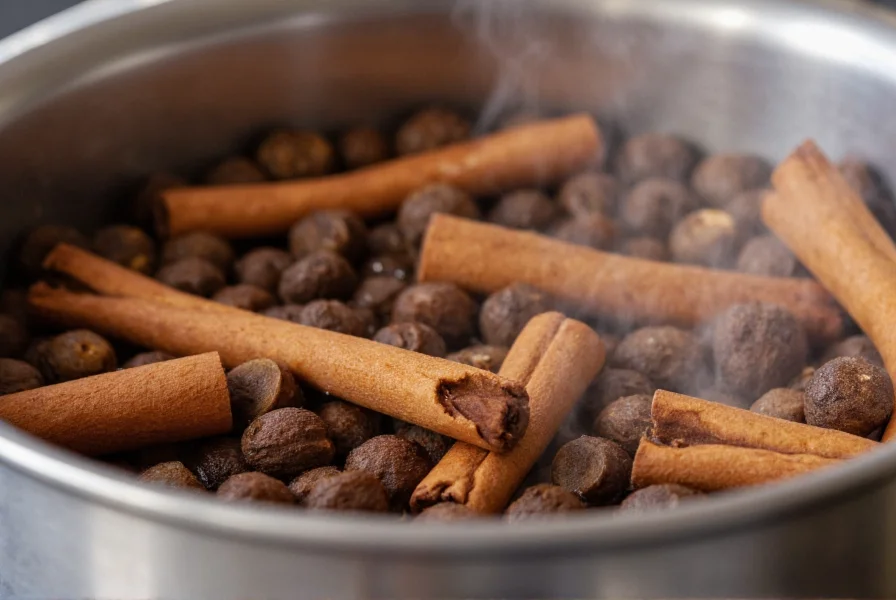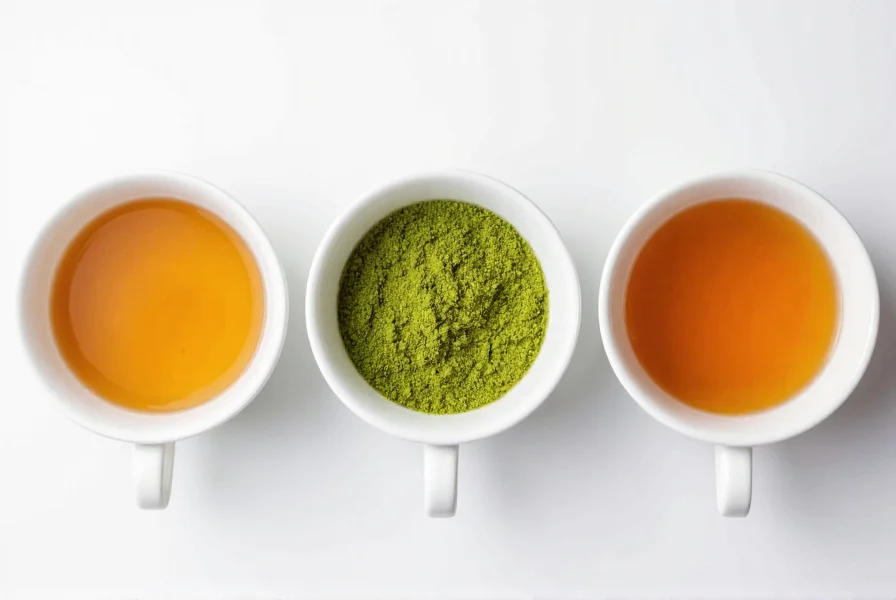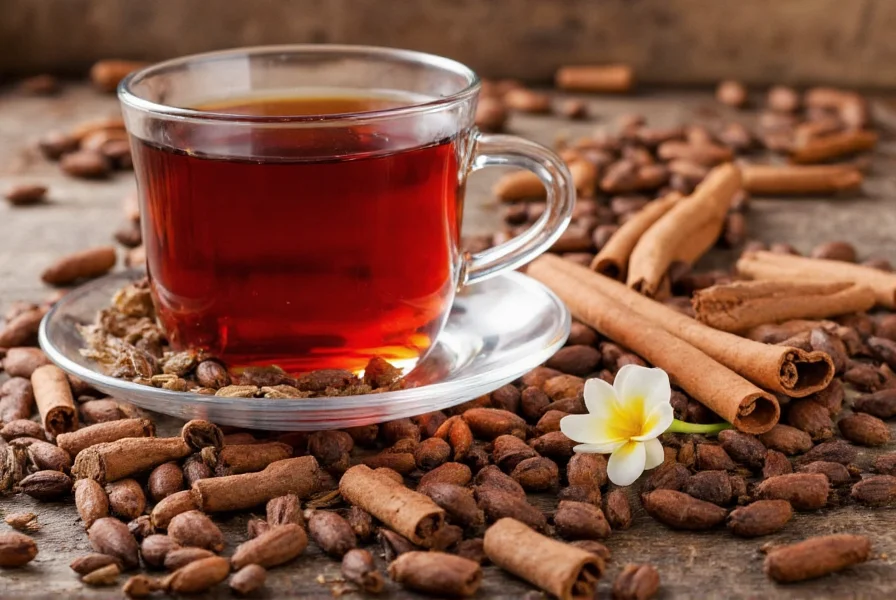Cinnamon and clove tea has been cherished across cultures for centuries, blending the warm, sweet notes of cinnamon with the spicy depth of cloves. This traditional herbal infusion has gained modern popularity as people seek natural ways to support wellness through functional beverages. Unlike commercial teas with artificial additives, this simple preparation harnesses the natural compounds found in these time-honored spices.
The Science-Backed Health Benefits of Cinnamon and Clove Tea
Modern research continues to validate what traditional medicine systems have recognized for generations: both cinnamon and cloves contain bioactive compounds with significant health-promoting properties. The primary active components—cinnamaldehyde in cinnamon and eugenol in cloves—contribute to the tea's therapeutic potential. Cinnamaldehyde enhances insulin receptor signaling and glucose uptake in muscle cells, while eugenol modulates inflammatory pathways at the molecular level.
Studies published in the Journal of Agricultural and Food Chemistry demonstrate that cinnamon extract can improve insulin sensitivity, making cinnamon and clove tea for blood sugar management a subject of growing scientific interest. However, it's crucial to understand that this tea complements—not replaces—medical treatment for conditions like diabetes.
| Active Compound | Primary Source | Documented Effects |
|---|---|---|
| Cinnamaldehyde | Cinnamon bark | Antioxidant, anti-inflammatory, may support metabolic health |
| Eugenol | Cloves | Antimicrobial, analgesic, anti-inflammatory properties |
| Anthocyanins | Both spices | Potent antioxidants that combat oxidative stress |
Historical Evolution and Modern Validation
The therapeutic application of cinnamon and clove has evolved through distinct historical phases, with modern science now providing mechanistic explanations for traditional uses. This progression reflects a convergence of ethnobotanical knowledge and evidence-based validation.
| Historical Period | Documented Applications | Modern Scientific Correlation |
|---|---|---|
| Ancient Egypt (1500 BCE) | Cinnamon in embalming; cloves in Chinese Han Dynasty texts for oral hygiene | Validated antimicrobial properties against Streptococcus mutans (Journal of Contemporary Dental Practice, 2020) |
| Ayurvedic Medicine (500 BCE) | Combined for "agni" (digestive fire) and respiratory ailments | Confirmed gastroprotective effects via COX-2 inhibition (National Center for Biotechnology Information, 2017) |
| European Pharmacopoeia (1800s) | Clove oil for dental pain; cinnamon for "hysterical" conditions | Eugenol's FDA-approved status as dental analgesic (21 CFR 184.1); cinnamaldehyde's neuroprotective mechanisms |
| Contemporary Research (2000s) | Metabolic syndrome management and antimicrobial resistance solutions | Clinical trials showing 0.5-1.0% HbA1c reduction in prediabetes (American Journal of Clinical Nutrition, 2012) |
This timeline illustrates how traditional applications have informed modern research directions, with contemporary studies now quantifying dosage-response relationships that ancient practitioners observed empirically.
How to Make Authentic Cinnamon Clove Tea
Creating an effective cinnamon and clove tea recipe requires attention to preparation methods that maximize the extraction of beneficial compounds while preserving flavor integrity. The traditional decoction method proves superior to simple infusion for these hardy spices.
- Measure 2 cups of filtered water into a small saucepan
- Add 1 whole cinnamon stick (preferably Ceylon variety) and 5-6 whole cloves
- Bring to a gentle boil, then reduce heat to maintain a simmer
- Cover and simmer for 10-15 minutes (longer for stronger flavor and extraction)
- Strain into a cup using a fine mesh strainer
- Optional additions: a slice of fresh ginger for digestive benefits or a teaspoon of raw honey after cooling slightly

Avoid using pre-ground spices when preparing cinnamon clove tea for digestion benefits, as whole spices release compounds more gradually and provide cleaner flavor. The simmering process allows water-soluble compounds to fully extract, creating a more potent beverage than quick steeping methods.
Safety Considerations and Optimal Consumption
While cinnamon and clove tea offers potential health advantages, understanding proper consumption parameters ensures safety. Cassia cinnamon—the more common variety—contains 1-5% coumarin by weight, whereas Ceylon cinnamon has negligible amounts (<0.04%). The European Food Safety Authority establishes a tolerable daily intake of 0.1 mg coumarin per kg body weight, meaning a 70kg adult should not exceed 7mg daily—achievable with just 1-2 grams of Cassia cinnamon (EFSA Journal, 2008).
Clove tea consumption requires particular attention due to eugenol's potency. The European Medicines Agency recommends no more than 2.5 grams of cloves daily for adults. Those taking blood thinners should consult healthcare providers before regular consumption, as both spices may enhance anticoagulant effects.
Pregnant women should moderate intake, as high doses of cloves may stimulate uterine contractions. Individuals with bleeding disorders or scheduled surgery should avoid therapeutic doses of this tea 2 weeks prior to procedures.
Contextual Limitations and Practical Boundaries
The efficacy of cinnamon and clove tea is highly dependent on specific physiological contexts and implementation parameters. Recognizing these boundaries prevents misapplication and optimizes benefits:
- Blood Sugar Applications: Demonstrated efficacy primarily in prediabetes and early-stage type 2 diabetes (HbA1c <7.5%), with minimal effect in advanced diabetes or type 1. Requires consistent daily consumption for 8-12 weeks to observe measurable changes (American Diabetes Association Standards, 2023)
- Oral Health Utility: Effective as a complementary rinse for mild gingivitis (reducing plaque by 26% in clinical trials), but ineffective against established periodontitis requiring professional intervention (Journal of Contemporary Dental Practice, 2020)
- Dosage Thresholds: Metabolic benefits require minimum 120mg cinnamaldehyde daily (equivalent to 1g Ceylon cinnamon), while coumarin toxicity risks begin at 1.5g Cassia cinnamon. Therapeutic window is narrow and individualized
- Contraindication Contexts: Contraindicated with CYP2C9-metabolized drugs (e.g., warfarin) due to eugenol's enzyme inhibition. Safe only when consumed ≥2 hours apart from iron supplements
These context-specific parameters underscore why personalized medical consultation remains essential before therapeutic use.
Comparing Cinnamon and Clove Tea to Other Herbal Blends
When evaluating cinnamon clove tea versus other herbal options, several distinctive advantages emerge. Unlike many single-ingredient herbal teas, this combination creates synergistic effects where the whole exceeds the sum of its parts.
The warming properties make it particularly valuable during colder months as a natural immune support beverage. Its antimicrobial profile differs significantly from chamomile or peppermint tea, offering broader protection against oral pathogens. For those exploring cinnamon and clove tea for weight management, its potential metabolic effects provide a different mechanism than green tea's catechins.

Integrating Cinnamon and Clove Tea Into Daily Wellness
For optimal benefits, timing your consumption strategically enhances the tea's effects. Drinking cinnamon and clove tea before meals may support healthy blood sugar responses to carbohydrates, according to research in the American Journal of Clinical Nutrition.
Morning consumption provides gentle metabolic activation, while evening cups can promote relaxation through the spices' warming properties—though those sensitive to stimulation may prefer daytime consumption. Consistency matters more than quantity; daily moderate consumption yields better results than occasional heavy intake.
Frequently Asked Questions
Can cinnamon and clove tea help with blood sugar control?
Research suggests cinnamon compounds may improve insulin sensitivity and help moderate blood sugar spikes after meals. A study in the Journal of the American Board of Family Medicine found that 1-6 grams of cinnamon daily showed modest improvements in fasting blood glucose. However, this tea should complement—not replace—medical diabetes management, and effects vary between individuals.
How often should I drink cinnamon and clove tea for maximum benefits?
For most adults, 1-2 cups daily provides optimal benefits without risk of side effects. Consuming the tea consistently over weeks yields better results than occasional consumption. Those using Cassia cinnamon should limit to one cup daily due to coumarin content, while Ceylon cinnamon allows for slightly higher consumption. Always listen to your body's response and adjust accordingly.
Does cinnamon and clove tea help with sore throat relief?
Yes, the eugenol in cloves has natural analgesic and antimicrobial properties that can soothe sore throats. Gargling with cooled cinnamon and clove tea may reduce throat inflammation and combat bacteria causing discomfort. The warming sensation also provides immediate comfort. For best results, use freshly prepared tea without added sweeteners when addressing throat issues.
Can I drink cinnamon and clove tea while pregnant?
Pregnant women should consume cinnamon and clove tea in moderation. While occasional small cups are generally considered safe, excessive clove consumption may stimulate uterine contractions due to eugenol's effects. Most healthcare providers recommend limiting to half a cup once or twice weekly during pregnancy. Always consult your obstetrician before adding new herbal preparations to your routine while pregnant.











 浙公网安备
33010002000092号
浙公网安备
33010002000092号 浙B2-20120091-4
浙B2-20120091-4